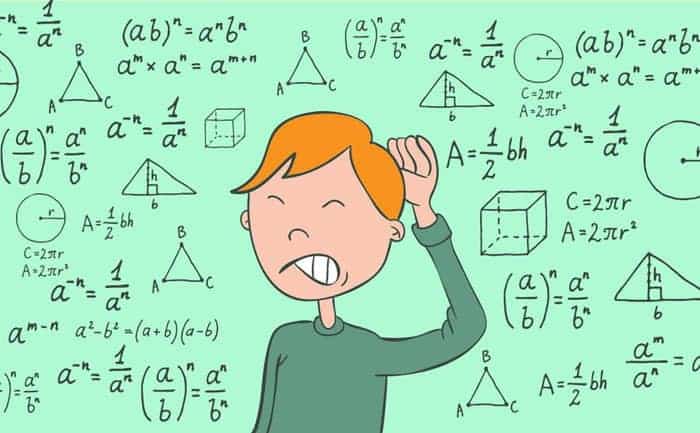How many things have we learned in our school life expecting to use them in reality which, we found out were in fact, a total waste of brain space?
From a very young age, an average Indian student is fed a healthy diet of multiplication tables, and an abundant number of formulas that they tend to cram up and carry with them for a period of more than 12 years. We adhere to these concepts for so long that the very idea of education becomes restricted to the ability to score well and not flunk, doesn’t matter if we actually learn something from it or not. Hence, eventually losing the ability to question the system.
I am sure we all believed at the age of 12 that by the looks of it, we would be using geometry on a daily basis. Yet, another day has passed and how much Pythagoras Theorem have you applied in real life? At some point in high school, we all get into geometric theorems and proofs, comparing triangles to other triangles, and a few other things that the Greeks had already figured out for us. But when it comes to applying them in real life, people just don’t encounter triangles in the wild pleading to be proved identical. Let us not forget how much we struggled with long division back in fourth grade. It was added to our math curriculum in an era when people smoked for their health and calculators were rare. Basically, the only people who use long division now are fourth-grade teachers teaching it to fourth graders.
Archimedes, the famous Greek Mathematician that contributed his fair share of principles and theorems, was considered highly intellectual. Lesser-known truth about his life is the cause of his death. When his city was captured and there were rage and terror everywhere, he was killed by a soldier, who mistakenly thought, the mathematical instruments Archimedes was carrying were valuable weapons and thus, killed him with his sword in anger. Which tells us how there’s actually a quite thick line between Maths and intelligence.
Our education system judges the mental level of students by seeing how accurate they are with math. Doesn’t matter if it’s anyone’s cup of tea or not. And it’s just not mathematics. We wouldn’t have struggled with History so much if instead of Jhum cultivation, or about how different rivers were named, we were made to read chapters on the stories written by the great Sadat Hasan Manto, who did not write words, but wrote emotions, covering every detail of those dark times, how various people of the society were affected differently.
Ironically, the word “Education” comes from the Greek word “Edukos”, which means ‘To Draw Forth From Within’. How very different from the prevailing schooling system which seeks the child’s soul to conform to the demands of a consumer-driven society, leaving us hackneyed. Imagine an education system so abominable that we make extra coaching, a thriving multimillion rupee industry with enough money to buy front-page ads, billboards and bus wraps.
When it’s said that education is the solution to various catastrophes of the world, it certainly doesn’t indicate what we studied about Mitochondria being the powerhouse of the cell. Rather, it’s about educating and making the people aware about inequality, cyber crimes, taxes, poverty, homosexuality, and numerous other visions that give us the power and confidence to question the issues prevailing in the world. Seeing unhealthy patterns in the previous generations and deciding those patterns end with us is an extremely powerful decision which is, in fact, the basic expectation from this generation, something that can only be achieved from a liberal education system that doesn’t produce mules.
Now to answer the question, will you ever use Pythagoras theorem in real life? Dissentious. Unless one plans on making a career in mathematics, about which, are you sure?
Feature Image Credits: Pinterest
Avni Dhawan






